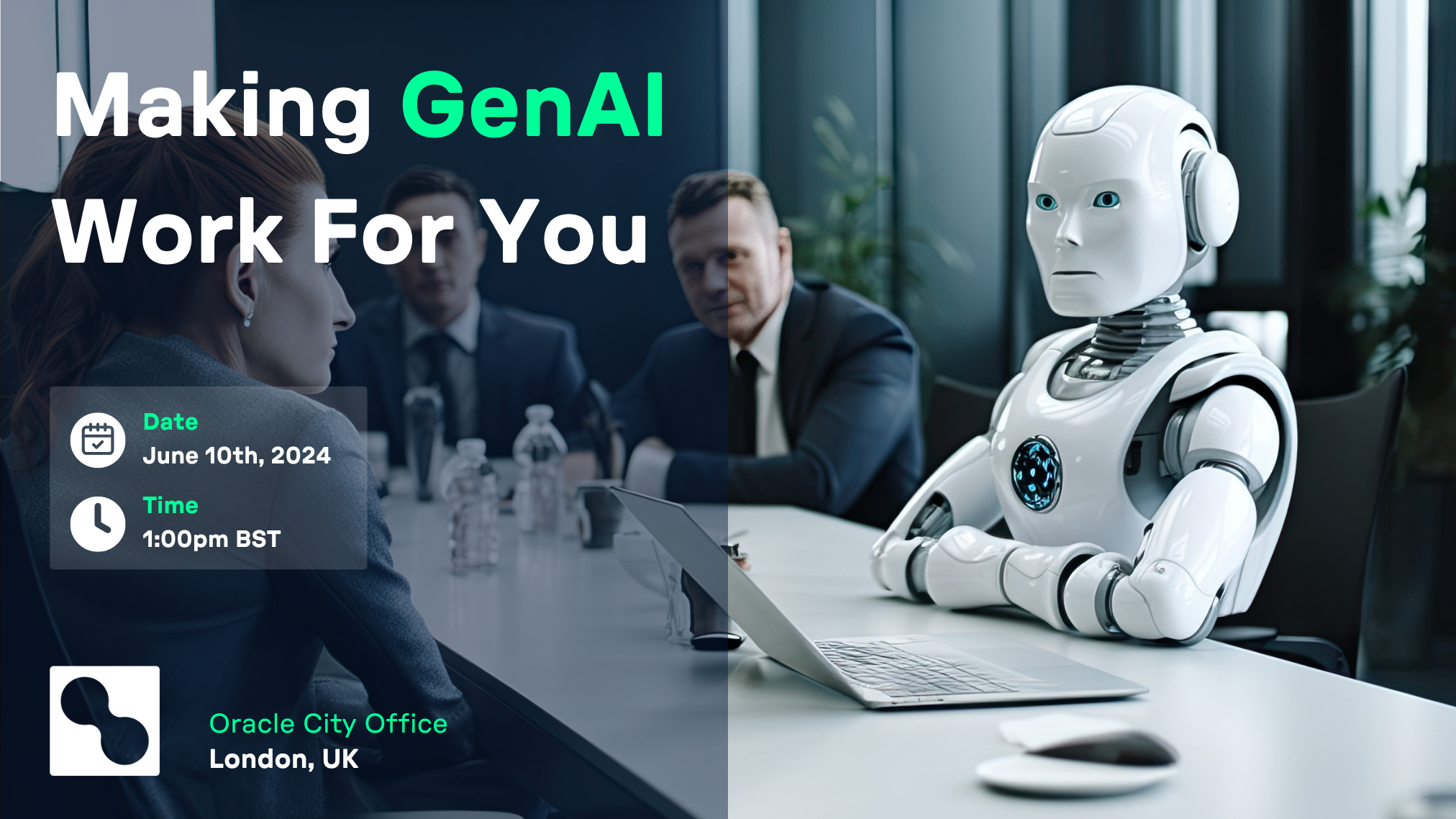Event | Making GenAI Work For You

How can your company benefit from AI? Discover how to conceive, plan, architect, implement and maintain GenAI and AI projects effectively.
As the hype around GenAI mounts, the question Rittman Mead are asked most is "how can my company benefit from this?".
The purpose of this event is to provide a top-to-bottom view of how to conceive, plan, architect, implement and maintain GenAI and AI projects.
Whether you're looking to streamline operations, enhance customer experiences, or drive innovation, this event will pave the way for effective AI adoption in your organisation.
Agenda:
Session 1 - How To Get Started
You need to start with a business case. However great the technology is, if it's just technology for technology's sake, then there's no benefit. Headline GenAI use cases typically include content generation and human interaction, but there are many more use cases centred around optimisation and other applications.
We begin by exploring broad categories of use cases: enhancing customer experience, optimising business processes, and innovating products/services. These serve as a framework to explore opportunities and identify bottlenecks within the business.
For potential use cases, we look at a validation process to determine if the organisation has, or can acquire, the data to support the use case, and whether the resulting model is actionable.
Finally, we touch on any ethical and legal considerations.
Session 2 - Planning and Design
This session will take you through the process of transforming your use case into reality. You need to be able to start by clearly stating your business case and defining what the success criteria are. You have to identify the key stakeholders. Who is the product owner, who owns the data and who is the budget holder?
Next, you need to determine the project approach. Are you going to run a proof of concept, if so is the final model going to be productionised? Is the project going to be built using a set of iterations, or just one single delivery? How will feedback be added back into the loop, how will the testing reflect the success criteria, are there non-functional tests required in areas like performance and security?
In tandem, you need to consider the high-level architecture. Are multiple environments going to be used, can the environment interact with production environments, what sort of processing, data storage and capacity is required? Finally, you need to identify metrics.
Session 3 - OCI Advantage
Our third session will dive into the technology you can use to deliver your AI project. Oracle Cloud Infrastructure (OCI) has a broad range of services that can support you, categorised into two main types: AI Services: provides an interface to prebuilt machine learning models in an easy-to-consume format, including speech to-text, image recognition, document extraction, language translation services, and generative AI models.
OCI Data Science Service: supports the entire lifecycle of AI model development including building, training, deploying, and maintaining models. This service offers a collaborative environment fully integrated with the OCI infrastructure. OCI's AI and GenAI capabilities are expanding rapidly, with several new features and services slated for general release throughout 2024. Amongst these is the release of Vector Database 23c which will enable vector search capabilities and support the native implementation of Retrieval Augmented Generation (RAG).
Don't miss this opportunity to gain valuable insights and learn from the experts.
Please contact us to find out more: info@rittmanmead.com